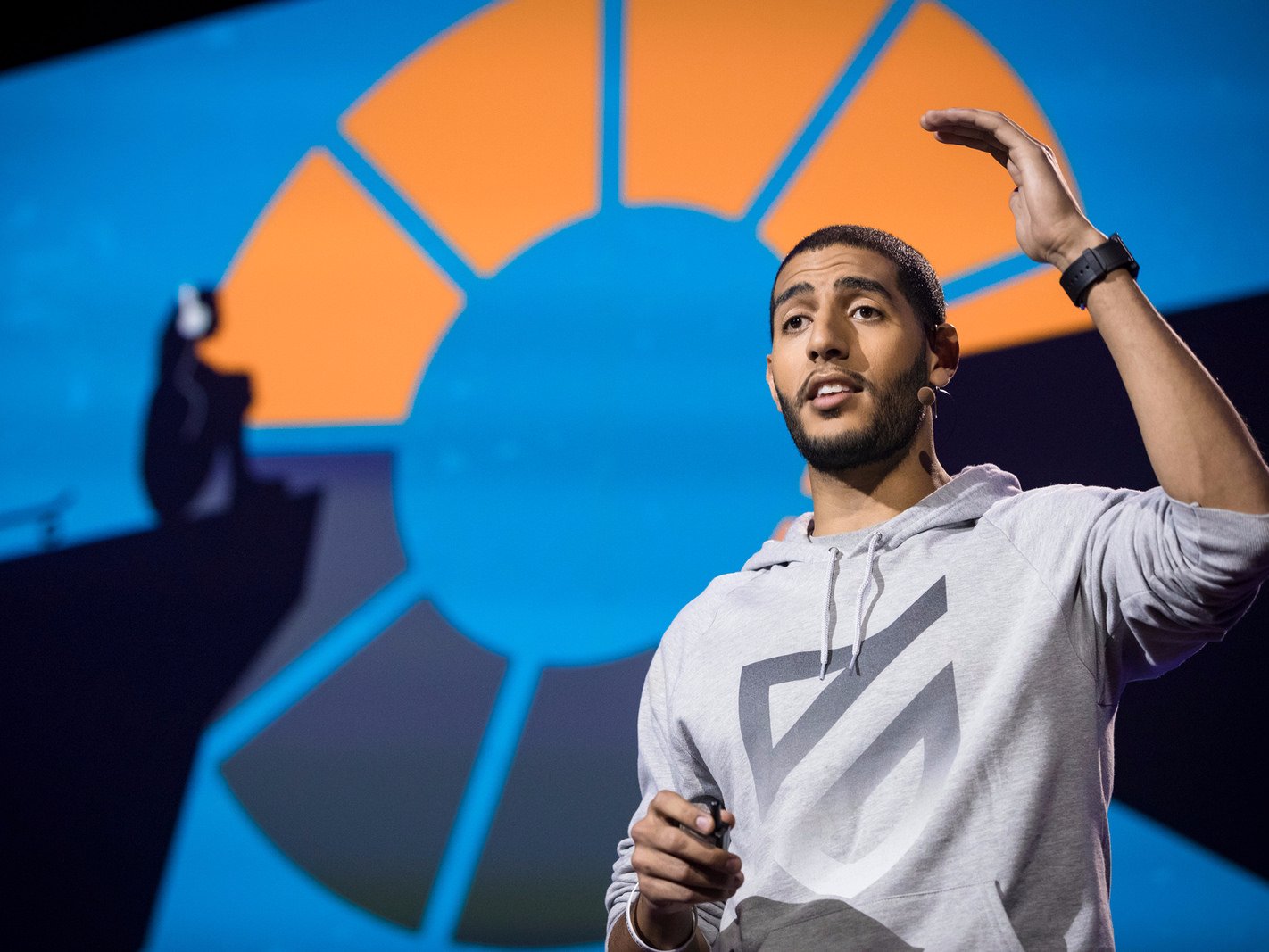
For most kids, summertime means a few forgotten math equations or the loss of select grammar rules. For others, particularly those in poverty, it can mean years of compounding disadvantages that result in fewer jobs and lower wages as adults.
Karim Abouelnaga may have found a workable solution to this phenomenon, known best as "summer slide."
Abouelnaga is the 25-year-old cofounder and CEO of Practice Makes Perfect (PMP), a company that hires teenage mentors to help low-income kids stay engaged for six weeks over the summer. Based on evaluations of PMP's model, kids in the program return to school in September a month ahead in math and two months ahead in reading compared to when they left in June.
Compared to where they would have been without PMP, the company estimates the leaps in proficiency are as great as four or five months.
"PMP's success to date has shown that there is hope," Abouelnaga tells Business Insider. "We can create change."
At the 2017 TED Conference, held in late April, he shared the data that his company has helped 4,000 kids avoid the summer slide since its inception, based on entrance and exit tests of reading and math. The company also created 1,000 seasonal jobs, about a third of which are student mentors hoping to become teachers.
PMP's programs vary depending on what a given school needs. Some ask for regimented classes on specific topics; others want more free-form enrichment, like field trips and activities. And some just want to help their incoming 6th-graders get used to a new school — "acclimation programs," as the company calls them.
In each case, the school must sign up by April. Abouelnaga says this shirks the traditional summer-school model by giving schools ample time to get organized. In most cases, classes start a week after the last day of school, hardly enough time for most teachers to prepare themselves.
Abouelnaga says the staggered mentorship structure of the program makes it extremely unlikely kids will drop out.
Middle-school kids get mentored by whip-smart high-school kids. High-school kids get mentored by college students — those looking to become teachers — who use the program as a paid internship. And those college kids get mentored by working NYC teachers who decided to help out.
As a result, everyone in the chain feels compelled to help or learn from someone above or beneath them.
"It's a lot easier to connect with someone who's a few years older than someone who's a lot older," Abouelnaga says.
In a lot of cases the younger participants — the "scholars" — end up asking to become mentors. Abouelnaga says this helps build the sense of empathy between older and younger kids that the company looks to provide.
The approach seems to be working. Roughly 85% of kids show up on a regular basis, compared to just 65% in summer school. Only about 5% of kids stop showing up entirely, he says.
Currently, the program is in 37 schools across New York City's five boroughs. Abouelnaga hopes one day to expand nationwide. For now, however, the city's 1.1 million kids more than keep his hands full.
Going by the statistics, Abouelnaga probably should have been a victim of the summer slide.
He grew up one of seven kids to a single mom in Queens, New York. Money was tight. Through persistence and an endless curiosity, he ended up attending Cornell and graduating in the top 10% of his class. It was there he learned about the corrosive effects of the summer slide, and also where he began work on PMP.
"The kids who I met at every level of our programs remind me of myself," he says. "I know what their potential is if we can empower them with the tools and resources they need to be successful."




